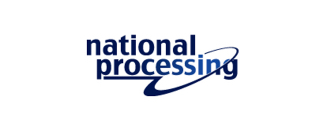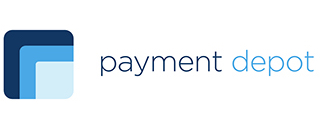💸 See if your business qualifies for a tax credit worth up to $26k per employee. 📞 Call Now: 855-979-9597
Best Credit Card Processing Services of 2023
Data as of 1/9/23. Offers and availability may vary by location and are subject to change.
We are committed to sharing unbiased reviews. Some of the links on our site are from our partners who compensate us. Read our editorial guidelines and advertising disclosure.
Payment processing is all about being able to electronically accept all kinds of payments from customers. It includes credit and debit card processing, but also includes more modern payment methods like accepting digital wallets and cryptocurrencies.
Nothing affects your bottom line more than being able to smoothly accept payments from your customers, so it’s crucial to find a payment processing solution that fits snugly into your business model. The last thing you need is to get into a long-term contract with a processing company that skims your transactions to make themselves some extra dough at your expense.
Our top pick is Square because of its abundance of small-business functionality at a great price. There are hundreds of payment processing companies, so to make your job easier, we’ve rounded up seven of the best payment processing companies operating today.
- : Best overall
- : Best customer service
- : Best for high volume merchants
- : Best pricing plans
- : Best for worldwide sales
The best credit card processing for small business
Data as of 1/9/23. Offers and availability may vary by location and are subject to change.
Interchange refers to the fees assessed by the credit card company every time a transaction is made. Processing companies pay these fees to credit card companies on your behalf. When a processing company offers transaction rates that account for interchange, that means they’ll be taking a cut over and above interchange rates. This pricing method tends to save your business money because it takes into account every credit card provider’s processing fees instead of just assessing a flat fee per transaction.
Best overall: Square
Data as of 1/9/23. Offers and availability may vary by location and are subject to change.
It’s hard to argue with the value Square offers to small businesses. If you want to start processing payments today, you can get a free mobile card reader from Square by opening a free account on their website. As soon as your free reader arrives in the mail, all you have to do is download the Square app, and you can start taking payments.
Square does have a higher price per transaction than other companies, but when you consider the fact that you don’t have to pay monthly and you can get a free mobile credit card reader, the total difference in cost may be negligible—especially for small businesses with lower transaction volume.
In addition to being a turnkey credit card processing solution, Square also offers a top-tier point-of-sale system. Inventory tracking, employee performance monitoring, and rewards programs are just a few of the features available to your business through Square’s point-of-sale features.
Square also lets you accept payments in any and all formats for reasonable rates:
- In-person payments. Use a mobile reader or any other Square terminal to accept payments.
- Invoice payments. Email your customers a payable invoice for 2.9% + 30¢ per invoice. You can set these invoices up to be recurring.
- Remote payments via computer. Accept payments over the phone at a rate of 3.5% + 15¢ for all card-not-present transactions.
- Online payments. Build an online store or integrate Square’s payment processor into your existing website for 2.9% + 30¢ per transaction.
And remember, you’re getting all this functionality for no monthly fee, making Square our top provider of credit card processing for small businesses.
Best customer service: National Processing
Data as of 1/9/23. Offers and availability may vary by location and are subject to change.
Here’s the quick-and-dirty of why you want a payment processor known for their superb customer service:
- Free equipment reprogramming. If you’re looking to change processing providers, integrating new services with existing equipment can be a pain. National Processing knows this, so they offer a full reprogramming of your equipment for free.
- Chargeback monitoring. Chargebacks are an expensive burden to handle by yourself. National Processing monitors your chargeback risk, helping you avoid those costs.
- 24/7 customer service. With easy access to quality customer service, you can rest assured someone will be there anytime you have a problem or need some help.
In addition to offering industry-leading customer service, National Processing also provides highly competitive rates. At $10 a month plus a rate of interchange + 0.15% + 7¢ per transaction, you’ll be saving a good deal of money. These savings can be a game changer if you’re operating at a higher sales volume.
Another way that National Processing helps you save is by offering you a free mobile card reader called Clover Go when you sign up. Then you can take payments on the go without paying for any new equipment.
If you do want new equipment, National Processing offers Clover Mini and Clover Station terminals that double as point-of-sale systems. This adds inventory management, promos, rewards, employee logins, and more.
Best for high volume merchants: Stax
Data as of 1/9/23. Offers and availability may vary by location and are subject to change.
The main competitive edge that Stax brings to the table is its low processing rates. Stax only charges the interchange cost per transaction—they don't mark up their fees like most other processors. This an save businesses hundreds of dollars per month.
Stax has the highest monthly fee of any of our recommendations at $99 per month. This means Stax isn’t for every business. Stax is designed specifically for businesses that have a high volume of monthly transactions.
Stax also offers popular channels for receiving payment:
- Invoicing
- Card-present transactions
- Remote computer payments
- Online API
Stax is competitive in its offerings, but you should be sure to calculate if its pricing model will save you money before you move forward.
Are you already using a point-of-sale system and don’t want to switch? Good news, Stax integrates with 90% of all third-party solutions. Here are some popular point-of-sale systems that Stax integrates with:
- Aloha
- Micros
- Revel
- Vend
Being able to integrate a new payment processor with your existing point-of-sale system is key if you don’t want your workflow to be disrupted. That’s why Stax makes it easy to switch your payment processor and keep your point-of-sale system.
Payment Depot: Best pricing plans
Data as of 1/9/23. Offers and availability may vary by location and are subject to change.
Payment Depot uses a tiered pricing plan with a monthly fee that increases as your sales volume increases. Each tier has the same processing cost of interchange-only fees.
Payment Depot works similarly to Stax. This is likely because Stax owns Payment Depot. The gap that Payment Depot fills in the Stax processing ecosystem is offering incredibly low rates for businesses with lower processing volumes.
Payment Depot's rates are incredibly low, so we wondered if the user experience suffered due to their service being so cheap. We did some digging into the user reviews of Payment Depot and found overwhelming positivity toward Payment Depot and its services.
Many of Payment Depot's plans come with free terminals. The Premier plan, for example, comes with a free smart terminal or free premium gateway.
That said, because Payment Depot has a monthly fee, it’s best suited for businesses that process credit cards at a fairly regular monthly volume. So, if you’re brand-new to processing or your credit card volume is sporadic, you may want to look into a flat-rate processor with no monthly fee.
Best for global sales: Stripe
Data as of 1/9/23. Offers and availability may vary by location and are subject to change.
Stripe is your best option for selling wares or services around the globe using your website. No other payment processor even comes close to what Stripe offers in worldwide online sales.
This is why Stripe has a higher processing fee than some of our other recommendations. There’s no monthly fee, which does offset some of the cost. Stripe knows it’s a little more expensive, and that’s why it offers features you can’t get anywhere else.
Here are a few key features of Stripe’s payment platform:
- Global payment acceptance. Adding a single stripe API to your website will allow you to accept payments in over 135 currencies.
- Checkout optimization. Design a custom checkout interface that maximizes flow across desktop and mobile interfaces.
- Easy website embedding. All you need is a single line of JavaScript to embed a checkout box on your website.
- Worldwide security licensing. Your payments will be safe, legal, and compliant all over the world thanks to Stripe obtaining and renewing licenses across the globe.
- Programmed dispute handling. This automates evidence submissions for chargebacks using the Disputes API.
You can also choose to use some optional add-ons. Stripe offers in-person processing if you buy one of their terminals and allows you to build custom checkout flows.
Stripe also offers credit card terminal processing. This isn’t its specialty, but its rate is pretty reasonable at 2.7% + 5¢ per successful charge. Still, if you’re looking for a fully featured point-of-sale solution, Stripe’s terminal and cloud management software probably won’t make the cut.
Also, be aware that to implement Stripe, you need a website and access to a programmer or web developer. Stripe is an online application that you have to integrate into your website. The only way around hiring a programmer is by designing a website on a web development platform that integrates with Stripe—like Squarespace.
You can start using Stripe for free today. You only pay when you make sales.
By signing up I agree to the Terms of Use and Privacy Policy.
Honorable mentions
These brands just missed our top 5, but you shouldn’t miss out on giving them a look. Both are solid brands with something unique to offer small businesses.
Credit card processing honorable mentions
- : Most Scalable Rates
- : Most flexible contract
Honorable mentions pricing
Data as of 1/9/23. Offers and availability may vary by location and are subject to change.
Helcim pricing system
Data as of 12/15/22. Offers and availability may vary by location and are subject to change.
What’s so notable about Helcim’s rates is that there’s no monthly fee despite the processing fees being relatively low. This gives Helcim a great value proposition. Not only will you save money if you process with them but don’t have consistent processing volume, you’ll also save if your processing volume starts to be consistent and grows over time.
In addition to great rates, Helcim has been consistently adding POS features to its service. It still doesn’t have any loyalty tools, but it has ways to track inventory and manage your restaurant. It has enough extras to be competitive. That’s why it's one of our favorite processing brands.
Most flexible contract: Dharma Merchant Services
Data as of 1/9/23. Offers and availability may vary by location and are subject to change.
Dharma offers competitive interchange plus pricing at a low monthly payment. It may not be the lowest-priced provider, but what really sets Dharma apart is its contract flexibility.
So if you have a seasonal business, Dharma won’t charge you any fees for deactivating and reactivating your account for your limited sales season. In fact, you’re billed with Dharma on a monthly basis and can freeze your account at any time, meaning no long-term commitments.
The only time you’ll be charged is if you decide to permanently close your account—there’s a $25 processing fee. Compared to many other payment processors, this is a very small fee.
Another way that Dharma competes with the best is by offering a fully featured merchant software that makes taking payments easy, allowing you to manage your payments from one simple place.
And if you're taking those payments from a storefront or restaurant, you can take advantage of Dharma’s special credit card processing rate at 0.15% + 7¢ above interchange, making your statements simple and easy to read and saving you money on processing costs.
The takeaway
Choosing a credit card processor can be tricky if you don’t know what features you need. If you’re unsure where to start with processing, we recommend trying out Square. It’s our number one choice because it does a little bit of everything without long-term contracts or monthly fees. If Square’s services don’t quite fit your bill, it’s easy to switch over to another recommended brand:
- National Processing will make the transition seamless with best-in-class customer service
- Stax will help you add cheap processing services to your current POS system
- Payment Depot will help you process at the lowest possible price on the market without sacrificing quality of products or services
- Stripe will give you the power to do business across the globe online
We’ve handpicked each of the brands above because they have reputable track records and a history of helping small businesses. Any of them will get your payment processing job done right.
If you’re looking for extra point-of-sale features and want more than just a way to process credit cards, be sure to check out our recommendations for the best small-business point-of-sale systems.
FAQs
Where do I find interchange rates?
You can find all current interchange rates on Host Merchant Services’ website. These rates are subject to change from month to month, so if you’re using a credit card processor that uses interchange-plus rates, you may see small fluctuations on your statements.
Many of our suggestions above offer APIs that can easily be added into the code of your website. Some are more customizable than others and may even offer a loose enough template to allow for branded payment processing.
What’s the difference between credit card processing and point of sale?
Credit card processing simply describes your ability to accept credit cards. This is usually done through a processing provider that works with credit card companies to pay interchange rates and stay PCI compliant.
Point of sale, on the other hand, often includes credit card processing, but it also includes a number of other features relevant to making a sale, like inventory management, rewards programs, and employee tracking.
Many credit card processing companies, like Square, also offer a suite of point-of-sale features that are often needed for customer purchases.
Methodology
We’ve vetted these companies with small-business owners in mind, looking for traits and features that best serve small-business needs, like these:
- Ease of integration. How easy is it to start taking credit card payments? How long is the sign-up and integration process? Will this processor integrate with your existing equipment?
- Fees and costs. What’s the cost per swipe? Are there any fees for chargebacks? Are there any fees for early account termination? Are there monthly fees?
- Customer service. Is it easy for a customer to contact customer service? Are the service representatives effectively resolving issues as they crop up?
- Multi-channel functionality. Does the processor allow for mobile payments, in-store payments, or over-the-phone payments?
- Industry expertise. Does the brand offer any plans suited to the needs of specific industries, like retail or restaurant?
Disclaimer
At Business.org, our research is meant to offer general product and service recommendations. We don't guarantee that our suggestions will work best for each individual or business, so consider your unique needs when choosing products and services.









